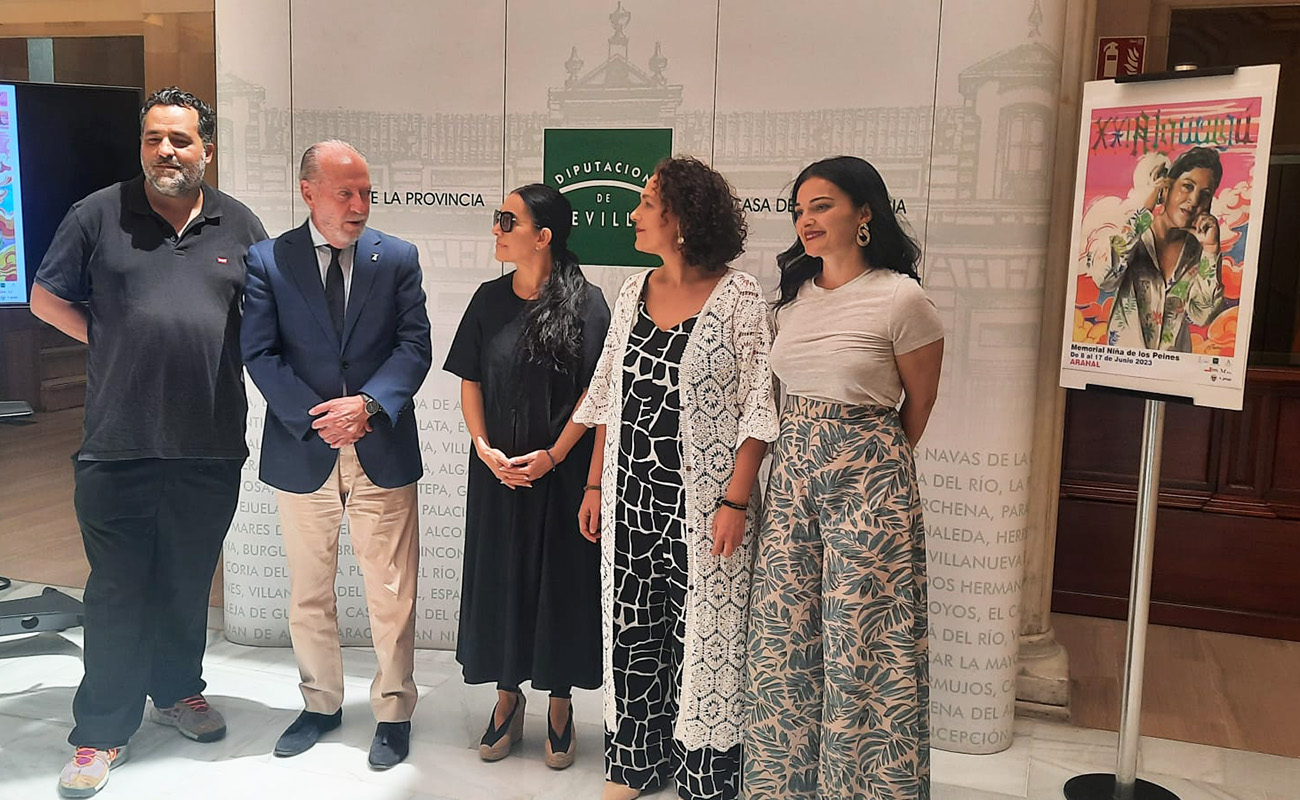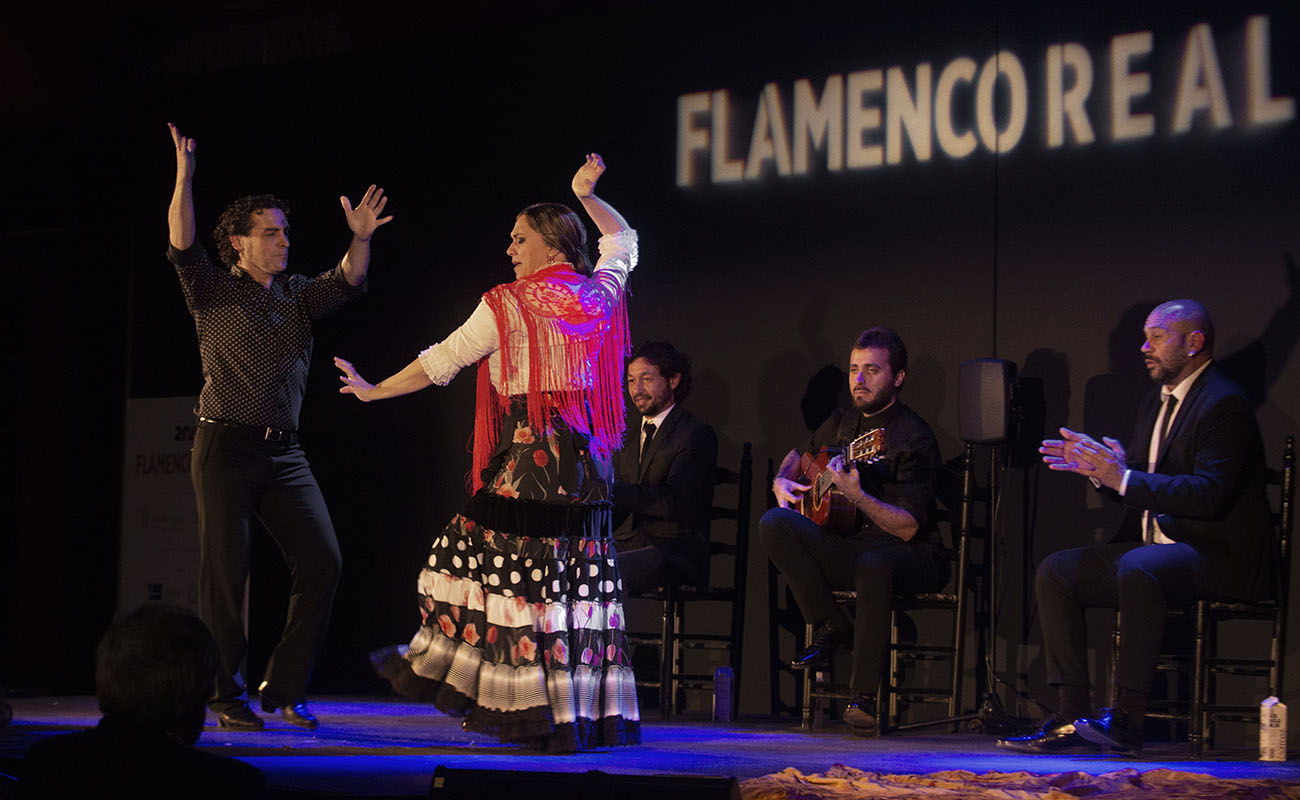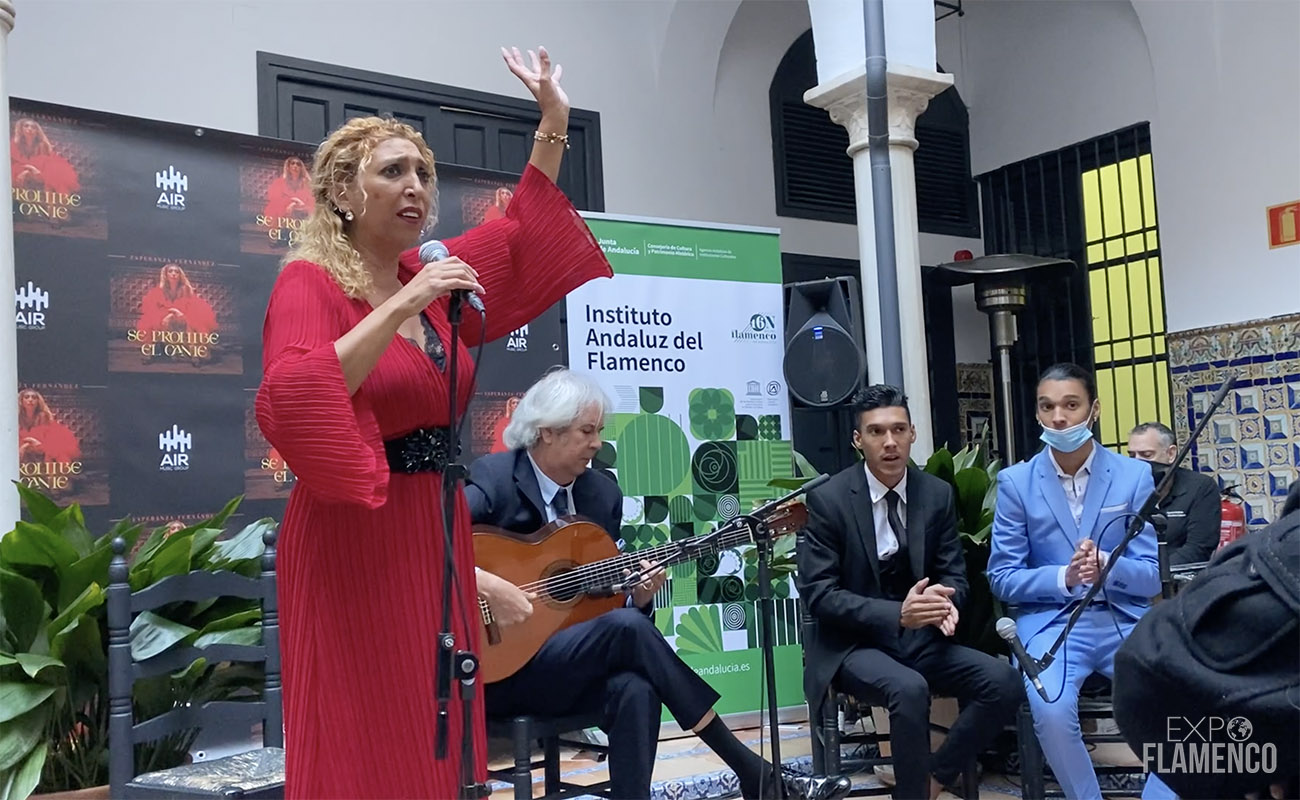José Mercé and Tomatito: «Regarding traditional, true ‘flamenco jondo’, the fact is that there’s not much to talk about»
The cantaor from Jerez and the Almerian guitarist recreate what was created in the album 'De verdad', which takes them on tour through big stages
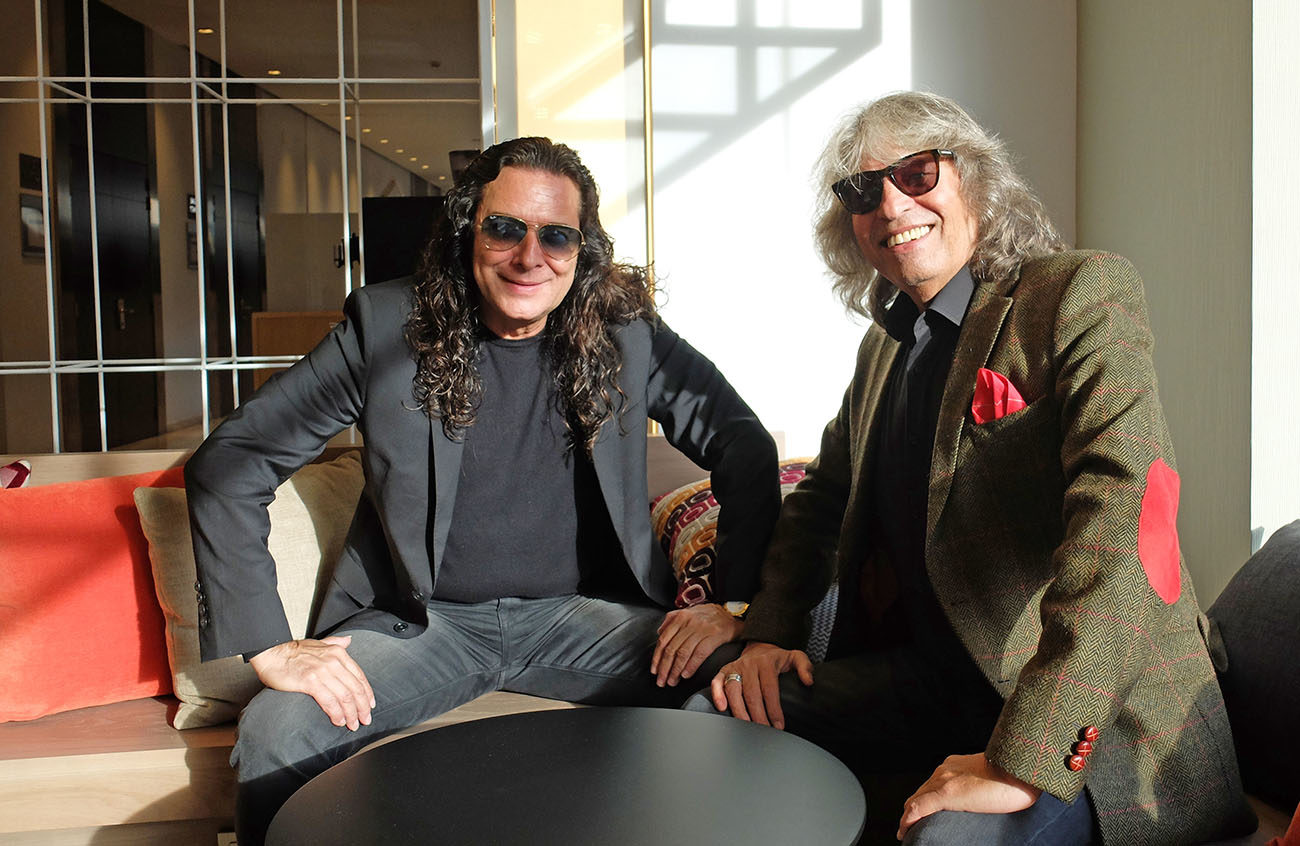
Text and photos: Quico Pérez-Ventana
Starting from pure tradition, sometimes they embraced contemporary music to transcend the limits of the flamenco music market. Yet, with their new album De verdad they return to the path of tradition. José Mercé (born in Jerez, 1955) and José Fernández Torres ‘Tomatito’ (born in Almería, 1958) are flamenco musicians, born into flamenco dynasties. Thus, no one should be surprised by this happy collaboration, not even the most conservative aficionados. They talk about all that with ExpoFlamenco in a lively conversation à trois.
We are in the lobby of the Plaza de Armas hotel, in Seville. This early-morning interview even includes a foosball game. «Ortodoxy is defined by the performer», says Mercé. «It’s the performer who makes things grandes or chicas. A cante por seguiriya or por soleá, which in our jargon are referred as cante grande, are not grande at all if the performer is unable to communicate anything. The performer is the one who makes the cante ‘grande’ or ‘chico’, orthodox or unorthodox».
–How are you doing, gentlemen?
–Tomatito: Very well, very eager to work, of doing it well and showing what we’ve done.
–José Mercé: Very eager to be on stage, we both, and having a lot of fun.
–A new album and a tour by two leading flamenco artists. No one can claim that there aren’t any important artists left in this musical genre.
–JM: Life has changed a lot. There isn’t that focus on the big star that was the norm in the old days. Both Tomate and I feel blissfully united, we know who we are. What we try is having fun on stage, and making our public have fun, too.
-T: In music there shouldn’t be any competition. There is the complicity, and doing it well. I became a soloist after Camarón passed away, but I really like playing the guitar for cante. I listen to people singing and I think to myself: ‘such good singing, great modulation’. It’s not all about dazing with the guitar.
–José, you address Tomatito as “Tomate”. Why is that, sir?
¬–T: Age, it’s about age.
-JM: I’m an old man already, I’m allowed to call him Tomate (laughter). He’ll always be Tomatito, there’s no question about it. But we’ve known each other for a long time and I’ve always called him Tomate, never Tomatito. Tomate this, Tomate that…
-T: Camarón always called me Tomate, poor thing. We never used the endearing forms among us. Tomatito is more for the public, for the concert posters and album covers. And some people call me José.
-JM: I sometimes call him Pepe.
-T: I don’t quite like that (laughter).
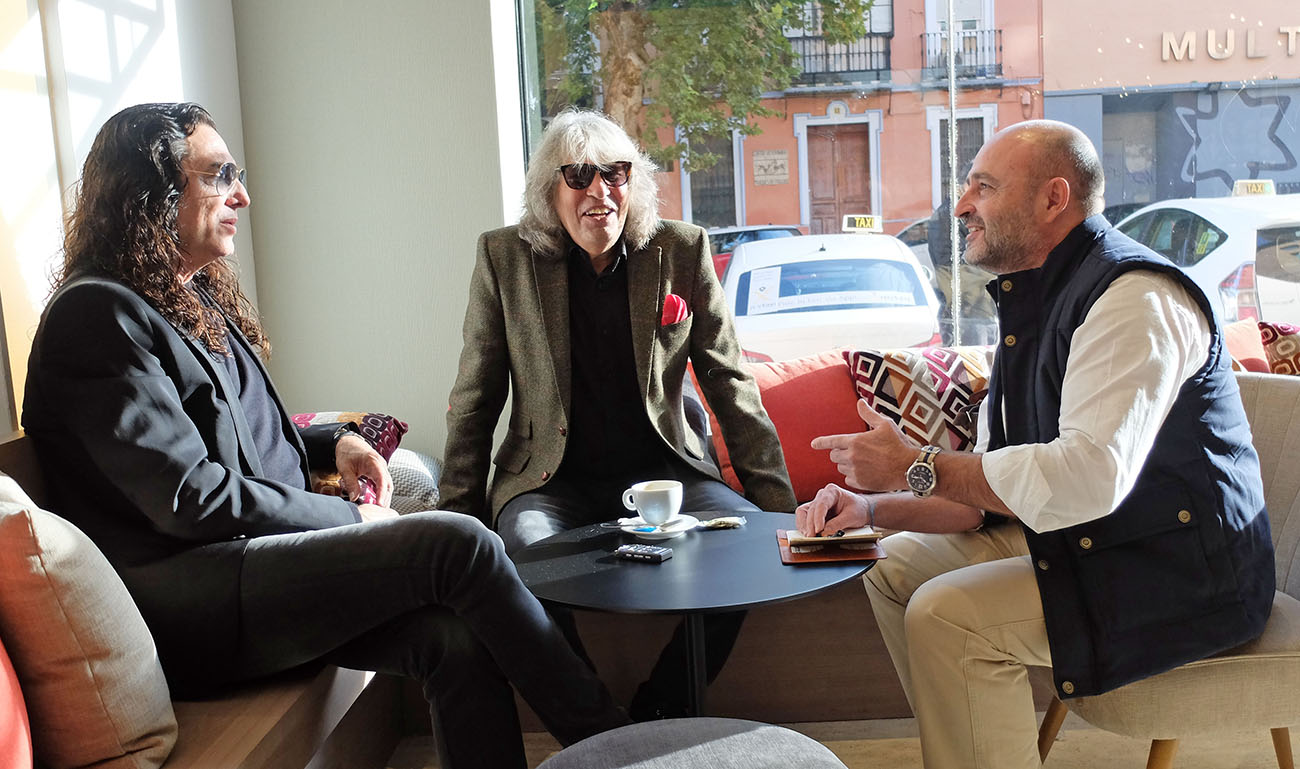
Tomatito y José Mercé, durante la entrevista con Quico Pérez-Ventana en el hotel Plaza de Armas, Sevilla.
–The album “De Verdad” was released a few weeks ago, and people are saying that Mercé and Tomatito have claimed their roots back. That sounds very solemn. Is this correct?
–T: That’s not correct. We’ve never left our roots, particularly José.
-JM: It’s not about claiming anything back. We just did what we felt like doing at the time. We felt like doing a granaína, a soleá por bulerías, a seguiriya, a Taranto… Let’s say that perhaps we wanted to recall our early days. We felt like it. But we didn’t claim anything back, we don’t own anything.
-T: It’s what we felt like, in that moment. We had been doing many different things.
–Agreed. So you don’t feel as ambassadors of anything. Yet, it seemed like it was the right time for such thing, no?
–T: Yes, that’s true. If we do it, it’s because we feel like it. And the public appreciates it. The other day we were at the Palau, in Barcelona, and when Mercé started singing por seguiriyas, the public…ah! It was as if it were a pop song… Ay!
-JM: We were both looking forward to doing something like this. It was the right time.
-T: That’s where we come from.
-JM: After so many different things that we’ve done, so much mixing, so much fusion… Well, we decided to go back to our early days.
-T: To the flamenco palos. There’s nothing like it.
-JM: No other palos have been created.
-T: Singing por seguiriyas. Remembering the soleá of Juanito Mojama, the Taranto de Almería…
–Sometimes there’s no need to create anything new.
–T: It’s necessary to recreate what has been created. If something has been created, it has to be recreated, made our own, as authentic as possible, according to what we’ve heard.
-JM: And convey emotion. If we’re unable to convey emotion, there’s no point doing it. In this case, we are very lucky that both Tomate and myself are able to convey our emotions.
–T: People will think whatever. What can we say? We can say that we feel happy and honored doing this. If we perform for two hours and the public doesn’t get up and leave, it’s because they’re having a good time. If I play the guitar, he sings, and people cheer, I’d feel super happy. Considering all the bad things happening in this world, if people have a good time, I’ll be delighted.
-JM: There will be all sorts of opinions. We recently premiered it at the Palau de la Música in Barcelona and it was a spectacular evening. Everyone had a lot of fun: we, our crew, the public… The warmth of the public is a huge boost for us.
T: They didn’t let us leave the stage. We had to do three encores. Everyone stayed put, all together.–Besides the artistic aspect, or perhaps because of it, you two have charisma. That’s fortunate, isn’t it?
–T: Yes, we both were born with charisma.
-JM: There is a saying in Spanish which goes “mejor caer en gracia que ser gracioso” [a play of words, roughly meaning “better having charisma than being funny”]. We really have to acknowledge that both Tomate and I have charisma. That’s very important. The fact of people liking us as soon as we climb on stage really helps us succeed.
–And that’s not easy. I know for a fact that there are many charmless artists out there.
–T: Possibly, and when that happens the public senses that lack of charm and it just doesn’t work.
-JM: The public may or may not understand [the technical aspects of the performance]. Yet, when it comes to convey emotion, the public quickly understands when we are generous and raw on stage.
–My apologies, but in all those flamenco interviews it’s always the same story. Whenever an artist is interviewed, it’s seems like we, the readers, care a lot about their opinion on those two other mainstream singers. And journalists don’t think twice about highlighting those opinions in their headlines, as it increases readership.
–JM: I’m fine with all things I’ve read.
-T: We can’t give an opinion about the things we haven’t heard.
-JM: All I say is that people can use flamenco for whatever they want, as long as it’s for a good thing. If they use pop, rap or anything else, I think it’s wonderful. Time will tell. What’s worth will stay, what’s not worth will be tossed in the garbage.
-T: Flamenco is a wise musical genre, according to all musicians the world over. When people think about Spanish music, what do they think of? Flamenco, right? What did [Spanish classical music composers] Falla and Albéniz do? People say “Spanish music”. No! It’s Andalusian music, flamenco music. So, if some kids decide to do other things and they take flamenco in account, if Rosalía sing tangos de Graná or old songs…
-JM: Perhaps if she had stuck to flamenco, she would be just another one of the pile. Making those stories, those incursions, well, to each their own, right?
-T: Look, José has done many things. I’m also from Camarón’s revolution. Look at all the ugly names people called Camarón when we recorded La leyenda del tiempo. They called him everything except pretty boy.
-JM: [Camarón] got hit harder than when I released Aire. I wasn’t criticized… So, it is what it is. What is worth, is worth, and what isn’t, gets tossed away.
-T: Like he said. Things come and go. Some young people like Rosalía. I like her too, why shouldn’t I like her? She’s pleasant to the ears. And if I listen to her, what can I say? That I’m the one doing flamenco? No, people don’t own anything. Music, flamenco, is out there, it belongs to everyone. If someone does something that people like, so be it. If then it turns out that it was just a fad, so it was a fad. And if she turns out being a musical genius, well…
–JM: I don’t know him, so I don’t have an opinion of him.
-T: When someone has no manners, it’s a lost battle. How are great things done? Talking. Even if there are no nice things to say. If I were a journalist, the greatest punishment I could give someone is never mentioning them. It’s worse to say how bad and rotten they are…–Why are there so many angry people in flamenco, so many well-versed aficionados arguing with each other in the social networks?
–JM: The world of flamenco has always been like that. A soon as artists are successful, people start looking for their defects. The great flamencologists go to the concerts of the big starts to check if they fail. They don’t care about the good things, but just about the failings. This is disturbing. Critics have always been destructive. There has been few constructive critics in the world of flamenco. That’s how it is.
–What is your opinion about the direction where flamenco is going?
–JM: I like what some young people are doing, but they still have a lot to learn. They have the right of making mistakes, like we all made mistakes when we were young. Yet, if we’re talking about traditional, true flamenco jondo, the fact is that there’s not much to talk about. Time will put everything in its place.
José Mercé and Tomatito ‘DE VERDAD’ tour
Feb 01: Girona (Auditori)
Feb 16: Sevilla (Cartuja Center)
Apr 12: Barakaldo (Teatro Barakaldo)
Apr 13: San Sebastián (Kursaal)
May 18:Fregenal de la Sierra, Badajoz
May 25: Granada (Auditorio Manuel de Falla)
Jun 7: Úbeda, Jaén (Hospital de Santiago)
Jul 19: Almería
Aug 15: Marbella (Starlite Festival)




